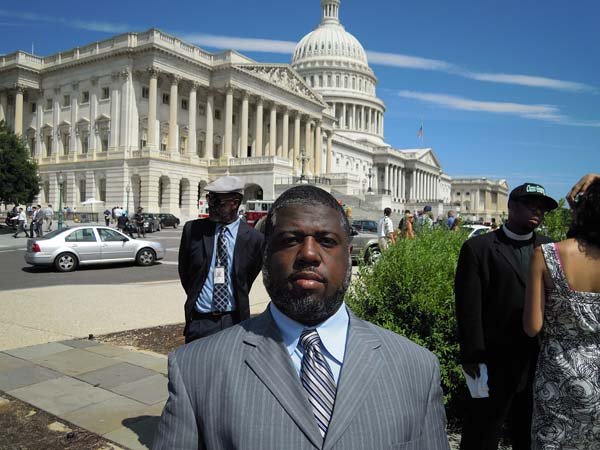WASHINGTON — President Barack Obama on Tuesday pushed the Senate to pass energy legislation that would cap carbon emissions.
Meeting at the White House with U.S. Sen. Blanche Lincoln and 22 other senators seen as key to the bill’s passage, Obama urged them to take action this year.
Carbon emissions are blamed by most scientists for a warming trend in the atmosphere.
At the meeting Obama reaffirmed his belief in a bill that would attach costs to emitting carbon, according to a statement released by the White House:
“The President told the Senators that he still believes the best way for us to transition to a clean energy economy is with a bill that makes clean energy the profitable kind of energy for America’s businesses by putting a price on pollution - because when companies pollute, they should be responsible for the costs to the environment and their contribution to climate change.”
Last summer, the House passed a bill that would do that by putting a cap on a company’s emissions and allowing businesses to trade emission credits on a regulated market.
Some participants, including independent Connecticut Sen. Joe Lieberman and Massachusetts Democrat Sen. John Kerry, are pushing a bill that would not set a cap on emissions, but would tax large emitters, such as power plants. They told the Associated Press that they were willing to give ground on their legislation, but stressed that Obama had pushed for stricter limits on carbon emissions.
Some senators, including Lincoln, a Democrat, say such an approach faces tough odds in the Senate.
“When you’re counting votes,” she said, “it would have a very difficult time.”
Lincoln would prefer an approach passed by the Senate Energy and Natural Resources Committee, on which she sits, that would not set a cap in place. Instead, it would mandate that states rely on renewable energy, such as wind and solar power, for a larger portion of their energy needs.
Lincoln said Obama was receptive to alternative approaches.
As Lincoln met with the president, city officials from Helena-West Helena and Gould visited Capitol Hill on a trip sponsored by the National Conference of Black Mayors to press the Senate to pass a climate change bill that mirrors the House passed bill.
That legislation includes a cap on carbon emissions and funding for lower income households and communities to offset the costs of adopting energy-saving measures, plus money to train workers for jobs in industries that minimize carbon output.
Mayor James Valley of Helena-West Helena said he favored Lincoln’s “conservative” approach to energy legislation.
“We need to get something in place that begins the process without crippling the economy,” he said. “We didn’t get here overnight and we’re not going to get away from here overnight,” he said.
Earnest Nash, the acting mayor of Gould, said he “most definitely” supports a more stringent bill that would put a cap on carbon emissions.
But he cautioned that residents of smaller towns need education - and funding - to begin adopting farming and business practices that emit less carbon.
“The state and federal governments need to make it possible for communities of under 5,000 people to go to a greener economy,” he said. “People don’t understand what it means to be green. It’s a way of life.”
Front Section, Pages 4 on 06/30/2010
